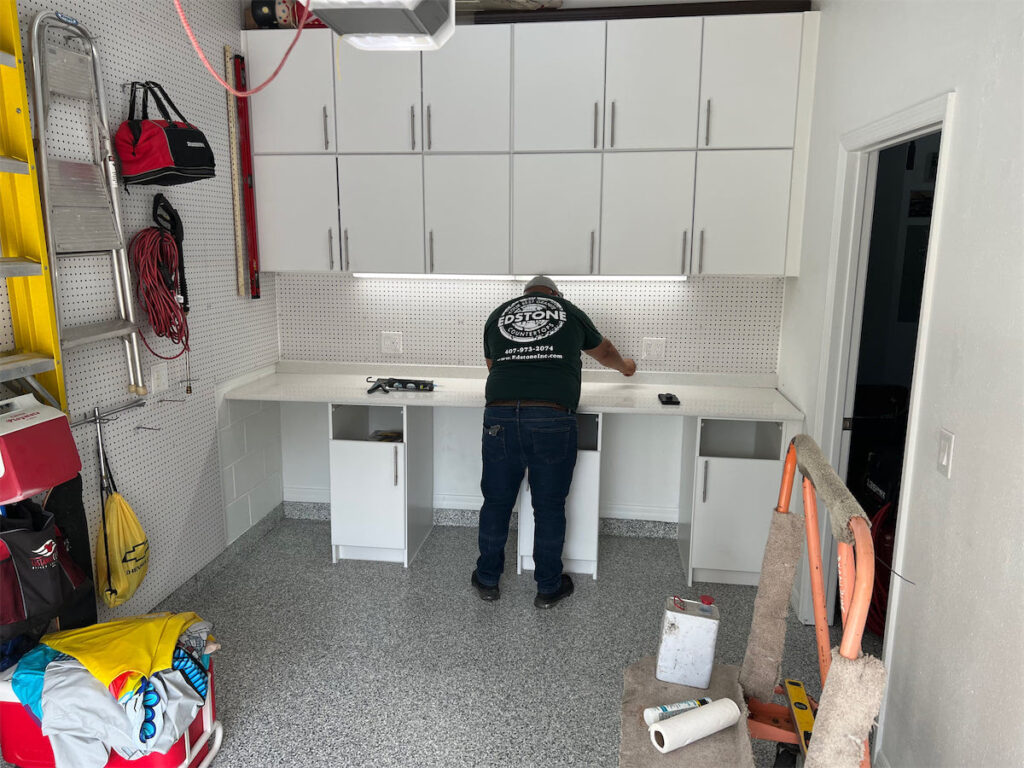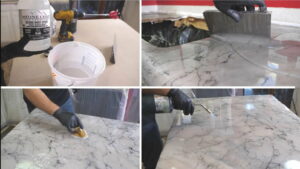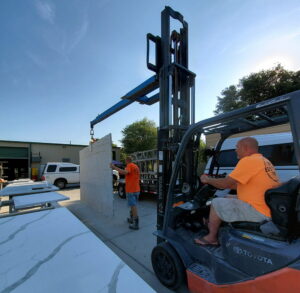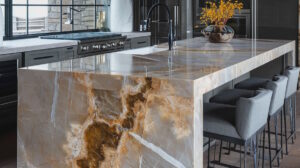Quartz countertops are not only appealing and water-resistant, but they also preserve the value of your home, both during your ownership and when you decide to sell. Prices for quartz countertops vary between $2,120 and $5,960. On average, the cost for installing quartz countertops in a kitchen spans around $4,040 for 40 square feet of the material.
Quartz Countertop Cost Per Square Foot
Like other surface materials such as granite and laminate, quartz countertops are priced on a per-square-foot basis, which offers flexibility in cost depending on the project’s size.
The price range for quartz countertops starts at about $53 per square foot and can go up to $149 per square foot, with the average installation cost slightly over $100 per square foot.
Here’s a breakdown of costs based on the amount of counter space:
- Kitchen island: 10 square feet, costing between $530 and $1,490.
- Bar top: 8 square feet, costing between $425 and $1,190.
- Small kitchen: 30 square feet, costing between $1,590 and $4,470.
- Medium kitchen: 40 square feet, costing between $2,120 and $5,960.
- Large kitchen: 60 square feet, costing between $3,180 and $8,940.
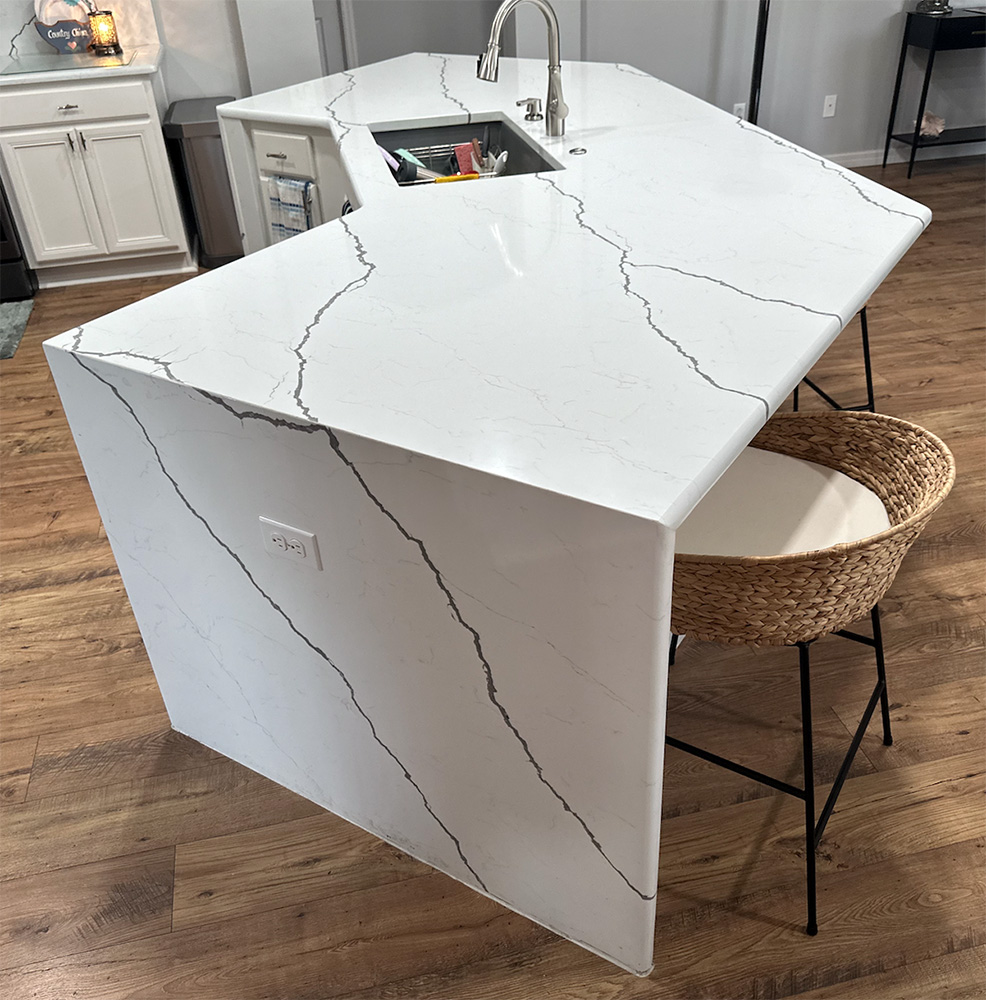
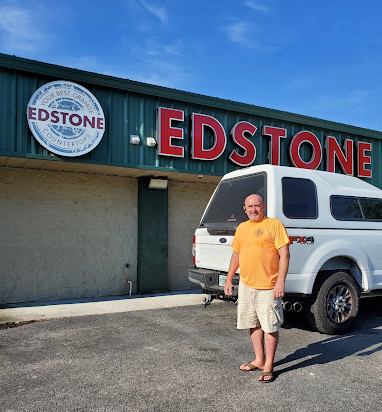
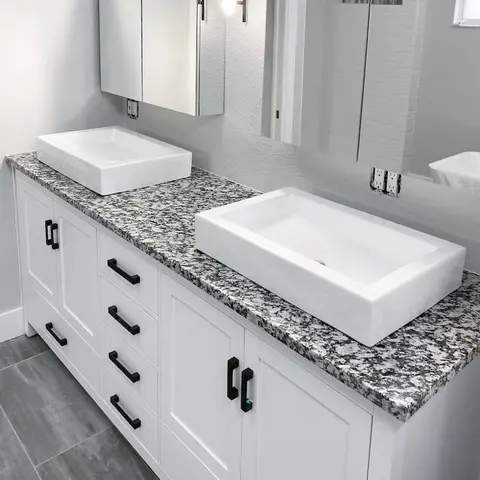
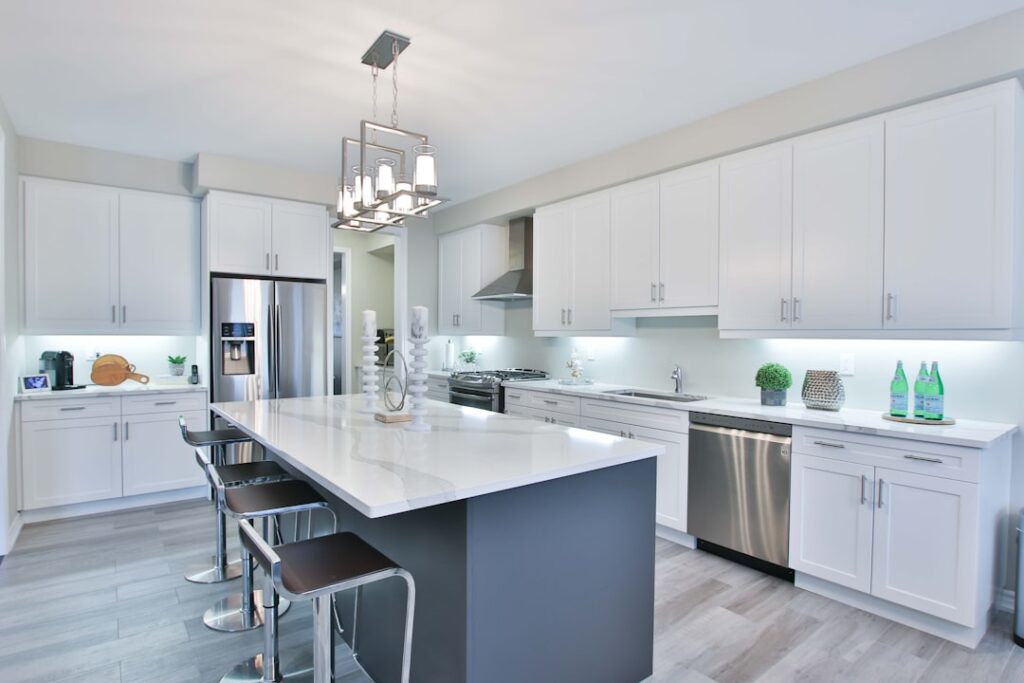

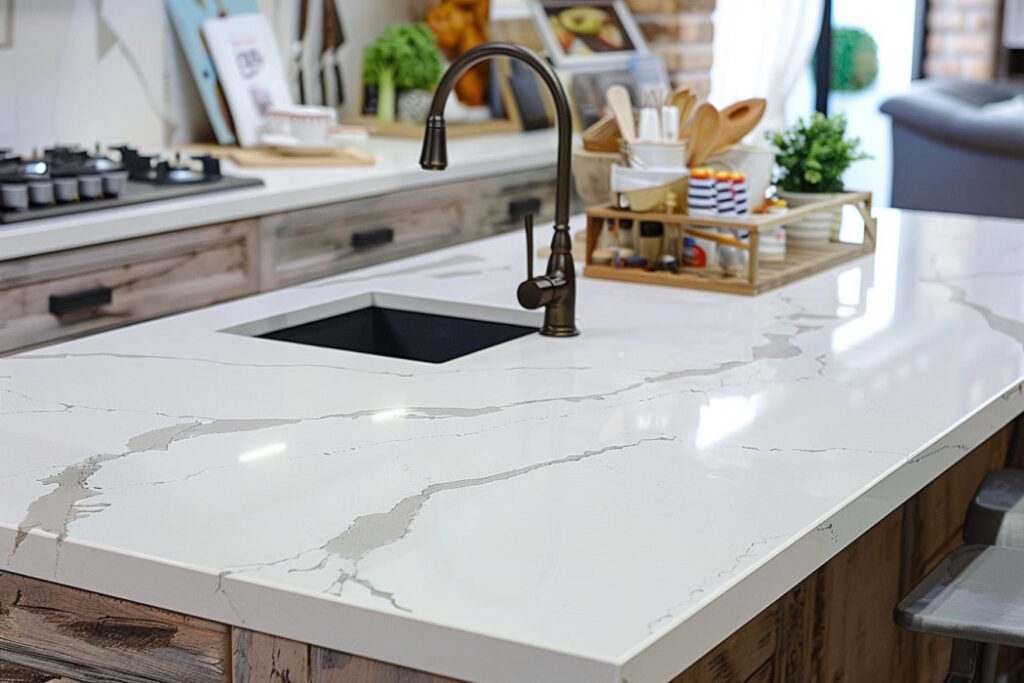
Quartz Countertop Cost Factors
The price of quartz countertops is influenced by various factors, primarily related to design choices such as the brand, type, and color, as well as aspects of fabrication and installation, including the removal of old countertops, edge treatments, and cutouts for sinks and faucets.
Edge Treatments
Standard edge options like square or eased (slightly rounded) edges are often included in the base price of the countertops. However, specialty edges such as bullnose, beveled, mitered, cove, or waterfall will incur additional charges. These specialty edges are priced per linear foot, starting at about $14.50 and reaching up to $65 per linear foot, with an average cost of approximately $39.75 per linear foot.
Corner Treatments
For quartz countertops, the treatment of corners can either be an extension of the adjacent edges or crafted separately. The cost for separately made corners ranges from $27.50 to $150 per corner, with the average cost for a specialty corner treatment being around $89 each.
Colors of Quartz Countertops
Quartz countertops come in a variety of colors specific to each manufacturer, carrying unique brand names and offering different visual textures.
- Concrete: A gray quartz countertop designed to mimic the rustic look of concrete ranges from $50 to $80 per square foot.
- White: A white quartz countertop resembling Calacatta marble is priced between $50 and $80 per square foot.
- Brown: A brown quartz countertop with granite-like speckles varies from $60 to $80 per square foot.
Countertop Removal
In kitchen or bathroom renovations, removing the existing countertop is essential for the installation of the new quartz surface. This process involves safely detaching the countertop without damaging the cabinets, disconnecting sinks and cooktops, and disposing of the old material. The cost for removal ranges from $5.75 to $14.50 per square foot, with an average cost of just over $10 per square foot.
Sink Cutouts
Cutouts for sinks are a significant factor in cost calculations for most kitchen and bathroom countertops. Quartz slabs are typically 120 inches long by 63 inches wide, and fabricators must cut these slabs to size, including necessary openings for sinks. Sink cutouts generally cost between $200 and $500 each, averaging around $350 per cutout.
Faucet Cutouts
Depending on the type of sink, faucet cutouts may not be necessary. For undermount sinks, where the faucet needs to penetrate the countertop, the cost is about $20 per hole. A typical kitchen sink requires three holes.
Sink Installation
The cost of installing an undermount sink in a quartz countertop typically stands at about $500, covering both the sink and the labor.
Quartz Countertops Cost by Brand
The cost of quartz countertops can significantly vary depending on the brand of the quartz material used, ranging from well-established products like Caesarstone to newer options such as Corian Quartz.
Caesarstone
Established in 1987, Caesarstone pioneered the quartz surface manufacturing industry. As the first company to develop these materials, Caesarstone has a range of quartz countertops costing between $50 to $150 per square foot.
Cambria
Since 2000, Cambria, a family-owned company based in Eden Prairie, Minnesota, has been producing quartz countertops. Committed to sustainable mining and manufacturing practices, Cambria’s products are made in the U.S. Prices for Cambria quartz countertops range from $61 to $122 per square foot.
Corian
Corian, traditionally known for its solid surface kitchen and bath materials, also offers a line of quartz countertops known as Corian Quartz. The pricing for Corian Quartz ranges from $60 to $117 per square foot.
Quartz Countertop vs. Other Materials
Here’s a comparative breakdown of the average costs for various countertop materials based on both per square foot and per kitchen estimates:
- Quartz: Ranges from $53 to $149 per square foot, with overall kitchen costs between $2,120 and $5,960.
- Sintered Stone: Costs $65 to $150 per square foot, with total kitchen expenses from $2,600 to $6,000.
- Granite: Priced at $40 to $100 per square foot, with kitchen costs ranging from $1,600 to $4,000.
- Laminate: Runs from $14 to $38 per square foot, with an average kitchen costing between $560 and $1,520. *Estimates are based on 20 linear feet (or 40 square feet) of countertop.
Quartz countertops can reach up to $149 per square foot when installed, a price point that is comparable to sintered stone and slab granite countertops. Both quartz and sintered stone are durable, solid, and waterproof, eliminating the need for regular sealant application. While slab granite also offers hardness and solidity, it differs as it requires regular sealant reapplication to maintain its condition.
In contrast, laminate countertops, though less expensive—costing three to four times less than quartz—are not as durable and are susceptible to scratches. This makes laminate a cost-effective alternative for those on a stricter budget.
Pros and Cons of Quartz Countertops
Pros of Quartz Countertops
- Durability: Quartz countertops are celebrated for their stone-like robustness.
- Scratch Resistance: These surfaces are highly resistant to scratches, maintaining their pristine appearance over time.
- Hardness: Quartz is a hard material, contributing to its durability and longevity.
- No Sealing Required: Unlike granite countertops, quartz does not require sealing, thanks to its non-porous nature which also makes it nearly waterproof and stain-resistant.
Cons of Quartz Countertops
- Expensive: High-quality comes at a cost, and quartz countertops are on the pricier side of countertop materials.
- Dulls Knives: The very feature that provides scratch resistance can also quickly dull knives, necessitating frequent sharpening.
- Thermal Damage: Quartz countertops are susceptible to damage from rapid temperature changes, which can be a concern in kitchens.
- Heavy: Weighing about 20 to 25 pounds per square foot, quartz is a very heavy material and requires strong support structures.
Quartz countertops combine exceptional durability and scratch resistance, making them a popular choice for kitchens. They never need sealing, which is a significant advantage over materials like granite. However, their hardness and weight present unique challenges, such as the potential for dulling knives and the need for robust cabinetry support due to their substantial weight.
DIY vs. Professional Installation
Due to the expertise and specialized tools needed to fabricate and install quartz countertops, it is generally advisable not to undertake this as a do-it-yourself project.
Professional countertop technicians utilize high-grade equipment, including manual wet circular saws equipped with diamond-tipped blades, which a DIY enthusiast would have to rent. Additionally, intricate plunge cuts are necessary for accommodating sink cutouts.
Considering the rental expenses for equipment and the risk of damaging an expensive quartz slab, it is wiser to engage a professional for the installation of your quartz countertop.
Labor Cost to Install a Quartz Countertop
Quartz countertop fabrication and installation require specialized skills. When a retailer or design house provides a quote for quartz countertops, it usually encompasses both the material costs and the labor.
Typically, labor costs for installing quartz countertops start at $20 per hour and can go as high as $51 per hour. On average, the labor cost for installing quartz countertops ranges between $36 to $40 per hour.
FAQ
- What is included in the price quote for quartz countertops?
- The price quote for quartz countertops typically includes both the cost of the materials and the labor for installation.
- What are the labor costs for installing quartz countertops?
- Labor costs for installing quartz countertops usually start at $20 per hour and can reach up to $51 per hour. The average labor cost falls between $36 to $40 per hour.
- Is it advisable to install quartz countertops as a DIY project?
- Due to the specialized skills, tools, and risks involved, DIY installation of quartz countertops is generally not recommended. Professional installation ensures proper handling and installation.
- What tools are required for quartz countertop installation?
- Installation of quartz countertops requires professional-grade equipment, such as manual wet circular saws with diamond-tipped blades, which are typically not readily available to most DIY enthusiasts.
- What are the risks of installing quartz countertops by myself?
- The main risks include the potential for damaging the expensive material and the additional costs of renting the necessary equipment. Improper installation can also lead to more significant issues down the line.
- Why are quartz countertops considered expensive?
- Quartz countertops are considered expensive due to the high-quality material used, the complex manufacturing process, and the specialized labor required for their installation.
- What are the benefits of quartz countertops?
- Quartz countertops are highly durable, scratch-resistant, and do not require sealing. They are also nearly waterproof, making them excellent for kitchen and bathroom environments.
- Are there any disadvantages to quartz countertops?
- The main disadvantages include their high cost, potential for thermal damage from rapid temperature changes, and their heavy weight, which requires sturdy support structures.

